Hello and welcome to Episode 53 of Read Paradise Lost with me, Jane Davis, a podcast and Substack newsletter about my project to read all of Paradise Lost by John Milton, aloud, and with a sometimes word-by-word, sometimes line-by-line discussion. This is a one-take recording with no editing, so forgive noise of seagulls, my coughing, or sound of men drilling next door. Rough and ready reading is what you get.
See Episode 1 for an introduction to the project.
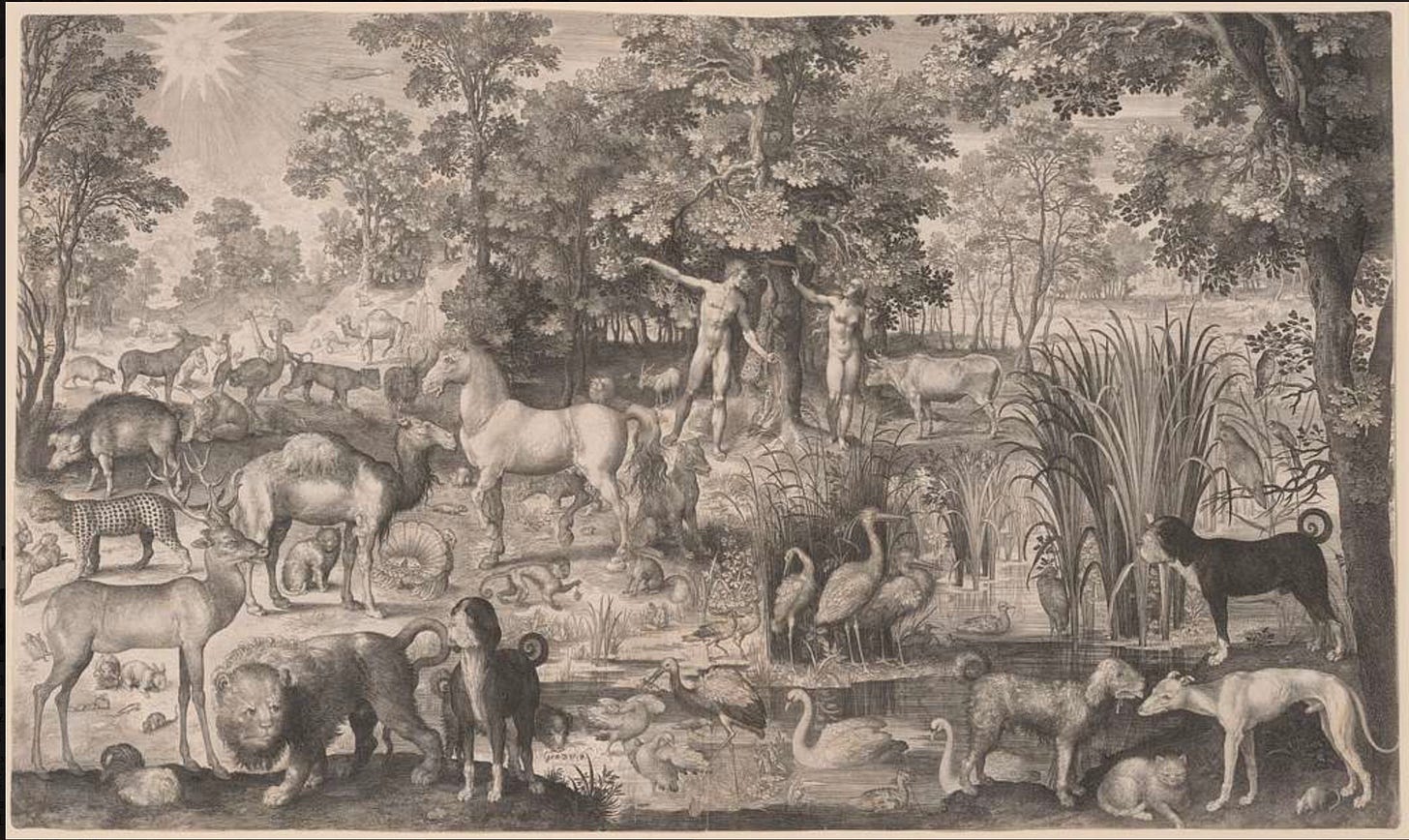
Last time, we read Adam’s first speech, and heard him repeat the known rules of paradise, for Eve, and perhaps for himself. You might want to glance back for a recap, but if not, let me sum up: No eating of the tree of knowledge of good and evil!
55 lines is our portion this week, and I’m going to read it in several parts.
To whom thus Eve repli'd. O thou for whom [ 440 ]
And from whom I was formd flesh of thy flesh,
And without whom am to no end, my Guide
And Head, what thou hast said is just and right.
For wee to him indeed all praises owe,
And daily thanks, I chiefly who enjoy [ 445 ]
So farr the happier Lot, enjoying thee
Præeminent by so much odds, while thou
Like consort to thy self canst no where find.
This preamble set my old 1970s feminist hackles rising and I had to give myself a good talking to make them lie down again.
I had remember that for Milton, and one assumes for most of the people in thousands of years of patriarchy, this sexist hierarchy was a given.
Yet the hackles grumbled on. And why must the patriarchs want to claim reproduction, birthing, as the centre of their male religion? The power of woman to create, to give birth, was and is an irrefutable sign and reality.
Yes, yes, Milton was working from the Bible and from Christian tradition and yet, in many places in this great poem he adds to or subtracts from the given to make what he wants to make…so I must accept that he wrote this on purpose, accepting that the true state of affairs from the beginning was that woman was formed ‘for’ and ‘from’ man. That man is meant to be both ‘guide’ and ‘head’.
I note that Eve uses the verb ‘enjoy’ here twice - she enjoys ‘the happier lot’ because she enjoys Adam, while he ‘Like consort to thy self canst no where find.’
Finally, I note that Eve seems much more sophisticated talker than Adam (do look back at his speech). And now, as if to confirm that feeling, she quickly turns from the formal arrangements of her subservience, to the story of her coming into being:
That day I oft remember, when from sleep
I first awak't, and found my self repos'd [ 450 ]
Under a shade of flours, much wondring where
And what I was, whence thither brought, and how.
Not distant far from thence a murmuring sound
Of waters issu'd from a Cave and spread
Into a liquid Plain, then stood unmov'd [ 455 ]
Pure as th' expanse of Heav'n; I thither went
With unexperienc't thought, and laid me downe
On the green bank, to look into the cleer
Smooth Lake, that to me seemd another Skie.
Eve’s story of her awakening (‘oft remembered’, but why? Is she thinking back to her days of self-absorption? me-time? ) is fantastically interesting - here is Milton taking the original and making of it what he will! A consciousness comes into being, finds itself, and begins to wonder. Of course - Milton, man of mind and consciousness would want to think about this moment, so easily passed over in the Genesis original.
I think also of Wordsworth reading it - he who, following Milton, wanted to write a great epic, and wrote, almost it seems by accident, about the growth of his own mind. Surely these lines would have electrified him.
A reader, in the zoom group, alert to the flowers Eve mentions, also pointed us all to Titania’s awakening in A Midsummer Night’s Dream (III,1,950)
[Awaking] What angel wakes me from my flowery bed?
Another reader spoke about Mary Shelley’s Frankenstein, and the Monster’s coming into consciousness, lonely, needing human contact.
As Eve awakes ( is it the birth of self that awakens her?) she hears a sound:
Not distant far from thence a murmuring sound
Of waters issu'd from a Cave and spread
Into a liquid Plain, then stood unmov'd [ 455 ]
Pure as th' expanse of Heav'n;
Oh Wordsworth! Thou shoulds’t be living at this hour! (to rephrase W’s poem to Milton).
A reader commented that this seemed as if creation was still happening - a lake forming before Eve’s eyes. Beautiful thought - to see it all evolving. But while we are enjoying this moment of creation, we might also want to take note of a point raised by Alastair Fowler:
Descent of a soul into what?
Is Eve’s ego already drawing her towards sin?
But let’s go on…
As I bent down to look, just opposite, [ 460 ]
A Shape within the watry gleam appeard
Bending to look on me, I started back,
It started back, but pleas'd I soon returnd,
Pleas'd it returnd as soon with answering looks
Of sympathie and love; there I had fixt [ 465 ]
Mine eyes till now, and pin'd with vain desire,
Had not a voice thus warnd me, What thou seest,
What there thou seest fair Creature is thy self,
With thee it came and goes: but follow me,
And I will bring thee where no shadow staies [ 470 ]
Thy coming, and thy soft imbraces, hee
Whose image thou art, him thou shalt enjoy
Inseparablie thine, to him shalt beare
Multitudes like thy self, and thence be call'd
Mother of human Race:
Is it natural then to look to self? To be self-absorbed? A primal instinct, in woman , at least, that says ‘you are the centre of things’. This self-love is not exactly a sin, but felt as a danger by the voice (God or angel?) who speaks. And what the voice promises is a real physical connection -
where no shadow staies [ 470 ]
Thy coming, and thy soft imbraces, hee
Whose image thou art, him thou shalt enjoy
Inseparablie thine, to him shalt beare
Multitudes like thy self,
And Eve, either drawn by the promise of touch/connection, or unable to resist the power of the voice, goes along with it:
what could I doe, [ 475 ]
But follow strait, invisibly thus led?
Till I espi'd thee, fair indeed and tall,
Under a Platan, yet methought less faire,
Less winning soft, less amiablie milde,
Then that smooth watry image; back I turnd, [ 480 ]
Thou following cryd'st aloud, Return faire Eve,
Whom fli'st thou? whom thou fli'st, of him thou art,
His flesh, his bone; to give thee being I lent
Out of my side to thee, neerest my heart
Substantial Life, to have thee by my side [ 485 ]
Henceforth an individual solace dear;
Part of my Soul I seek thee, and thee claim
My other half: with that thy gentle hand
Seisd mine, I yielded, and from that time see
How beauty is excelld by manly grace [ 490 ]
And wisdom, which alone is truly fair.
So spake our general Mother, and with eyes
Of conjugal attraction unreprov'd,
And meek surrender, half imbracing leand
On our first Father,
Yes, Adam is attractive, but not as lovely to Eve at first as the mirror image in the pool had been,
methought less faire,
Less winning soft, less amiablie milde,
Then that smooth watry image;
When she turns to go back to the pool, Adam tells her she is his, of him, and ‘part of my soul.’ When his gentle hand takes her own, she remembers, ‘and from that time see/How beauty is excelld by manly grace/And wisdom, which alone is truly fair.’
She is deeply attracted to him, and he to her, and whatever their physical and perhaps mental differences, they are in some sense matched. Eve may be more - earlier I said sophisticated - but now I’m going to say intelligent than Adam. He, glorious though he is, seems from what he has said so far, rather a stolid, slightly dull presence. Eve is altogether more odd and more interesting.
It is right, says Milton, with that big word ‘unreprov’d’, for a woman to be sexually attracted to her man and that is where he becomes revolutionary, isn’t it?
And so we leave them, leaning together, slightly hidden by her fall of hair.
More next week.





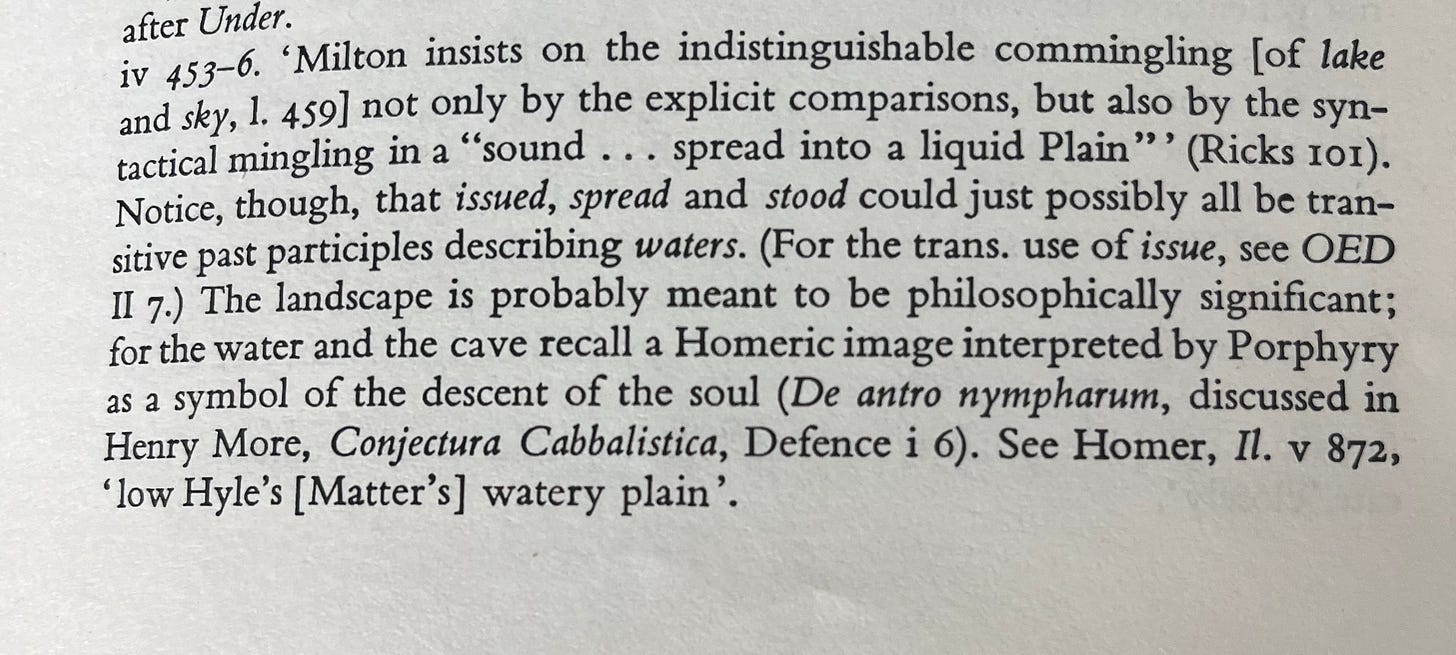

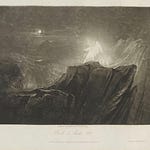
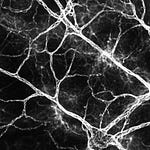

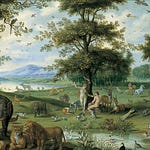
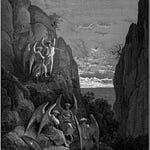
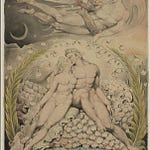
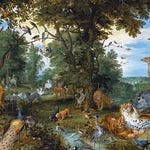
Share this post